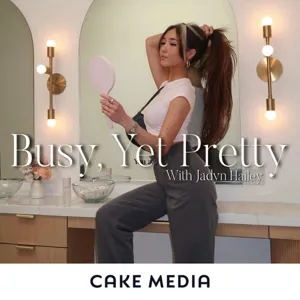Oikology (DECLUTTERING) Encore with Jamie & Filip Hord + Joe Ferrari

Why does clutter happen? How can we get rid of it and how will it affect us psychologically if we do? Buckle up for an encore that will lift your spirits and quite possibly change your life. We all have unfolded piles of laundry, that closet we don’t want to open, a tornado of papers on our desk that seems impossible to sort through. Enter: Oikology, the science of keeping things contained. Alie hunted down world-famous professional organizers, Jamie & Filip Hord of Horderly to chat about -- FIRST OFF-- their name, plus gender and messes, when to call in a pro to help, the step-by-step process to tackle the entropy in your home and life, what do do about gifts you don’t want, what tools you might need, the KonMari method, how to overcome the emotional attachment to objects, and why decluttering becomes addictive. We also called in the big guns, research psychologist Dr. Joe Ferrari of DePaul university, to share his research on clutter, its psychological causes and effects, if the “spark joy” method works for everyone, when to call a professional organizer and how many pants is too many pants. Also: dispatches from my own front lines. This episode already changed my own life… and closet.
Visit Jamie and Filip Hord’s website and follow them on Instagram, X. and YouTube
Listen to Dr. Ferrari in the Volitional Psychology (PROCRASTINATION) episode and check out his book: Still Procrastinating?
Donations went to Dress for Success and the Institute for Challenging Disorganization
Smologies (short, classroom-safe) episodes
Other episodes you may enjoy: Attention-Deficit Neuropsychology (ADHD) Part 1 & Part 2, LIFE ADVICE, Volitional Psychology (PROCRASTINATION), Eudemonology (HAPPINESS), Discard Anthropology (GARBAGE), Disinfectology (BLEACH)
Transcripts and bleeped episodes
Become a patron of Ologies for as little as a buck a month
OlogiesMerch.com has hats, shirts, hoodies, totes!
Follow @Ologies on Instagram and X
Follow @AlieWard on Instagram and X
Editing by Mercedes Maitland of Maitland Audio Productions, Jarrett Sleeper of MindJam Media & Steven Ray Morris
Managing Director: Susan Hale
Scheduling producer: Noel Dilworth
Transcripts by Aveline Malek and The Wordary
Website by Kelly R. Dwyer
Theme song by Nick Thorburn





